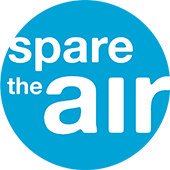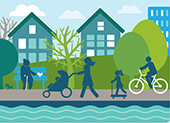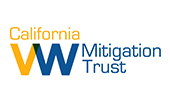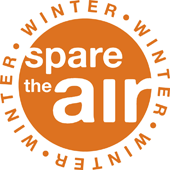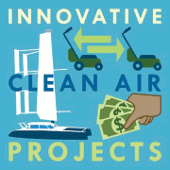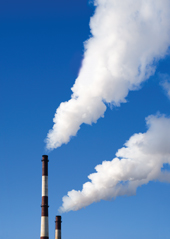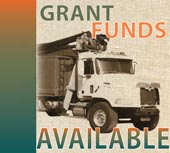|
|

|
|
|
|
May 2019 l Volume 2019-2
|
|
|
|
|
|
|
In this issue, you’ll find articles about the upcoming summer Spare the Air season, the opening of the latest cycle of the Jim Cary Smith Community Grant Program and new funding available for community readiness grants. Other articles cover a meeting about the Volkswagen Environmental Mitigation Trust, a summary of the past Winter Spare the Air season and an overview of the Air District’s 2018 grant program allocations. A recent settlement agreement with Shell is featured, as well as a summary of current grant opportunities.
|
|
|
|
|
|
|
|
|
|
|
|
|
|
Summer Spare the Air Season Begins
|
|
| | |
|
The Air District is announcing the launch of the 2019 Spare the Air summer smog season on Wednesday, May 1. The millions of cars on our roadways each day remain the largest source of smog pollution and greenhouse gas emissions in the Bay Area. The Spare the Air campaign encourages Bay Area residents to drive less and look for ways to share, shorten or change their commutes to help reduce smog, traffic and gridlock in the region.
Bay Area employees are encouraged to check with their human resources office to learn what commuter benefits are available to them through their employer. The Bay Area Commuter Benefits program requires all employers in the Air District’s jurisdiction with 50 or more full-time employees to offer commuter benefits to their workers.
During the warmer weather months, Spare the Air Alerts are issued when smog, or ozone pollution, is forecast to reach unhealthy levels. Ozone can cause throat irritation, congestion and chest pain. It can trigger asthma, inflame the lining of the lungs and worsen bronchitis and emphysema. Ozone pollution is particularly harmful for young children, seniors and those with respiratory and heart conditions. When a Spare the Air Alert is called, the public is encouraged to limit outdoor exercise in the late afternoon when ozone concentrations are highest.
Know when a Spare the Air Alert is in effect:
|
|
|
|
|
|
|
|
|
|
|
|
|
Air District Opens New Round of Community Grants
|
|
| | |
|
Under the James Cary Smith Community Grants program, the Air District has again renewed a $250,000 fund for grants to nonprofits and community-based organizations to support community-oriented solutions that address air pollution and help reduce our global climate impact. Grants of up to $25,000 per project will be awarded for air quality education and engagement efforts. These grants will fund non-technical activities such as active transportation educational campaigns, and urban greening and environmental justice community engagement projects.
Examples of eligible activities may include, but are not limited to:
- Non-technical air quality educational campaigns
- School or community-led tree planting projects
- Neighborhood level urban greening projects
- Active transportation programming in areas of high air pollution
- Support for air quality-related community engagement work in areas of high air pollution
- Community environmental justice education and outreach
Applications are now being accepted and must be uploaded electronically by 5 PM on June 7, 2019. The program guidelines are available on the Air District’s Community Grants Program web page.
The Air District held a webinar and informational session on April 22, during which prospective applicants had the opportunity to ask questions about their proposals.
Funding from the James Cary Smith Community Grants program will serve to encourage collaborative partnerships between the Air District and community-based organizations. Applicants located in Assembly Bill 617 communities (i.e., identified high cumulative exposure burden areas), or projects that address an environmental justice issue will be prioritized for funding. (See Appendix B of the guidelines for a map of the AB 617 high cumulative exposure burden areas.)
This program is named for Jim Smith, the Air District's former community outreach manager, who launched the first community grants program in 2009. Mr. Smith passed away in 2015 from ALS, and this program extends his vision of a more engaged and empowered community.
|
|
|
|
|
|
|
|
|
|
|
|
|
Air District Offers Community Readiness Grants
|
|
| | |
|
The Air District is now accepting applications for community readiness grants under the Community Health Protection Grant Program. Grants of up to $50,000 are available to community groups, neighborhood associations and other community-based local nonprofits based in neighborhoods identified under Assembly Bill 617 as Year 2-5 communities: East Oakland/San Leandro, Eastern San Francisco, Pittsburg-Bay Point, San Jose, the Tri-Valley area, and Vallejo.
Eligible activities include those that increase interest in local air quality issues and build a community’s capacity to partner with the Air District to develop future emission reduction or air monitoring plans.
Applications will be accepted until 5 PM, June 21, 2019.
The Air District will host a webinar and information session on Wednesday, May 22, 2019, at 3:30 PM, during which prospective applicants can ask questions about their proposals. Please register to attend.
Visit the Air District’s Community Health Protection Grant Program web page for more information.
|
|
|
|
|
|
|
|
|
|
|
|
|
Air Districts and CARB Host Meeting about California’s Allocation of the Volkswagen Environmental Mitigation Trust Funding
|
|
| | |
|
The Bay Area, San Joaquin and South Coast Air Districts, in cooperation with the California Air Resources Board, are hosting a public stakeholder workgroup meeting about the implementation of California’s $423 million allocation of the Volkswagen Environmental Mitigation Trust on Monday, May 6, at 10 AM in San Francisco. The workgroup meeting will provide an opportunity for stakeholders to learn, ask questions about and provide comments on the implementation of funds and project categories. Staff will discuss available funding, types of eligible projects, program timeline, reporting and operational requirements and other implementation details.
Projects will focus on scrapping and replacing existing mobile heavy-duty equipment with lower emission technology. This equipment includes on-road freight trucks, transit and shuttle buses, forklifts and port cargo-handling equipment, commercial marine vessels and freight switcher locomotives. Funds will also be allocated for infrastructure projects which support the market adoption of zero-emission vehicles.
The Trust is the result of partial settlements with VW as a consequence of its use of illegal devices designed to cheat on emissions tests. The Trust provides funding opportunities to mitigate the excess emissions caused by the subject VW vehicles.
Workgroup Date and Time:
Monday, May 6, 2019
10 AM
VW Mitigation Trust Webcast
(not active until date/time of meeting)
Location:
Bay Area Air Quality Management District
375 Beale Street, Yerba Buena Room
San Francisco, CA 94105
Similar meetings were previously held from April 11 to April 30 at Sacramento, Fresno, Diamond Bar, Redding and San Diego. Following a public comment period, solicitations will be developed for each of the project categories and are anticipated to open later this year.
The public can find more information about the Volkswagen Environmental Mitigation Trust on the CARB website. More information can also be requested via email at vwmititrust@arb.ca.gov.
|
|
|
|
|
|
|
|
|
|
|
|
|
Winter Spare the Air season comes to an end
|
|
| | |
|
The Air District’s 2018-19 Winter Spare the Air season ended on February 28, with 16 Winter Spare the Air Alerts called from November through February. Fourteen out of the 16 of these Winter Spare the Air Alerts were caused by smoke from the Camp Fire, which led to some of the unhealthiest air quality ever recorded in the Bay Area. Only two Winter Spare the Air Alerts were called due to normal winter weather conditions that trapped wood smoke near the ground.
This season, the Air District received a total of 1,319 wood smoke complaints from Bay Area residents. There were 45 violations issued to residents observed to be in violation of the Wood Burning Rule; 35 of these violations were issued during the period of unhealthy air caused by the Camp Fire.
Complaints by County
Alameda – 155
Contra Costa – 304
Marin – 164
Napa – 56
San Francisco – 58
San Mateo – 179
Santa Clara – 185
Solano – 27
Sonoma – 178
No county details provided – 13
TOTAL – 1,319
First-time violators of the Wood Burning Rule are encouraged to take a wood smoke awareness course and learn more about the health impacts of wood smoke and the winter weather conditions that lead to unhealthy air quality. Those who choose not to take the course will receive a $100 ticket. Second violations are subject to a $500 ticket, with the amount increasing for any subsequent violations.
Wood smoke from the 1.4 million fireplaces and wood stoves in the region is the largest source of wintertime air pollution in the Bay Area, containing harmful pollutants such as particulate matter and carbon monoxide. Exposure to wood smoke has been linked to serious respiratory illnesses and increased risk of heart attacks.
The Wood Burning Rule still requires, on a year-round basis, that residents who use their fireplace or outdoor fire pit burn cleanly using dry, seasoned firewood and that they not burn garbage, leaves or other material that would cause excessive smoke. Residents who exceed the visible smoke provision of the rule could still be subject to a ticket, even outside the November–February Winter Spare the Air season.
|
|
|
|
|
|
|
|
|
|
|
|
|
Air District Distributed Almost $100 million in Funding in 2018
|
|
| | |
|
In 2018, the Air District allocated a total of $97.2 million in grant funding for projects designed to improve air quality throughout the nine-county Bay Area. These grants were distributed through a variety of funding sources, including the Carl Moyer Program, the Mobile Source Incentive Fund and the Transportation Fund for Clean Air, among others.
About 59 percent of this funding went to projects located in communities designated through the Air District’s Community Air Risk Evaluation Program as disproportionately burdened by air pollution.
In all, over $44 million was awarded to off-road vehicle projects, over $32 million to on-road vehicle projects, and $6.2 million to trip reduction projects, with the remaining $5 million to miscellaneous other projects.
Off-road vehicle projects included funding for cleaner alternatives for:
- Non-agricultural off-road equipment
- Marine equipment
- Locomotives
- Agricultural equipment
On-road projects included:
- School buses
- Electric vehicles and charging
- Vehicle Buy Back
- Trucks and transit buses
Trip Reduction Projects included funding for:
- The Spare the Air Program
- Shuttles and ridesharing
- Bicycle paths and lanes
- Commuter Benefits
- Bicycle parking
Miscellaneous other projects included:
- Climate change protection grants
- Wood smoke reduction
- Community education and engagement
Altogether, these projects will decrease emissions of major criteria air pollutants by approximately 370 tons per year, in perpetuity. This reduction is equivalent to removing over 62,000 vehicles from the road in the Bay Area.
Grant revenues for 2019 are projected to climb even higher, reaching about $142 million. Funding priorities for 2019 include a focus on Assembly Bill 617 designated communities, which are disproportionately impacted by air pollution (with projects aimed at reducing emissions from on-road trucks, off-road and cargo-handling equipment, locomotives, marine vessels, and stationary sources); programs that help to accelerate the transition of the region’s vehicles and equipment to zero-emissions alternatives in support of the Air District’s Diesel Free by ’33 campaign initiative; and incentives to support trip reduction and innovative first- and last-mile solutions.
|
|
|
|
|
|
|
|
|
|
|
|
|
Air District Settles Case with Shell Oil Products
|
|
| | |
|
In March, Shell Oil Products agreed to pay $165,000 to the Air District to settle air quality violations at its petroleum refinery in Martinez. The settlement covered 16 notices of violation issued to the company for non-compliance with air quality regulations during operations that took place in October 2015 and 2016. The violations that led to this settlement were corrected soon after they were discovered.
Four of the violations stemmed from an incident in December 2016 that was caused by an operator error. The error was corrected within a few minutes but resulted in sulfur dioxide emission exceedances, three opacity exceedances and a shelter-in-place.
Other violations included:
- An overdue vessel cargo tank check for emission leaks
- Broken tank seals on an organic liquid storage tank
- Opacity exceedances, and sulfur dioxide and hydrogen sulfide exceedances
The Air District issues notices of violation when facilities violate a specific air quality regulation or rule. Violators are required to respond to the notice within ten days and submit a description of the actions they will take to correct the problem. These actions can include shutting down certain operations immediately or changing operations or equipment to come into compliance.
All settlement funds will be used to fund Air District activities such as the inspection and enforcement activities that led to this settlement.
|
|
|
|
|
|
|
|
|
|
|
|
|
|
| | |
Air District Offers Millions in Grants
|
|
The Air District administers a number of grant funding programs that offer incentives for clean air projects. Grant Programs Currently Open
For public agencies and businesses
Equipment/Engine Replacement/Repower or Conversion and Infrastructure:
- Community Health Protection Grant Program – The Air District is offering $50 million in grant funds to reduce toxic air emissions and ozone-forming pollutants from older, polluting diesel engines through the Community Health Protection Grant Program. For the initial year of this program, the Air District is accepting applications for projects that reduce emissions in communities along the 80/880 freeways from Hayward to Richmond, and along the refinery corridors from Vallejo/Rodeo to Pittsburg. Community input will play an important role by informing the Air District’s project outreach and project identification processes. Applications are currently being accepted on a first-come, first-served basis until all funds are awarded to owners of eligible equipment and vehicles by June 2019. www.baaqmd.gov/ab617grants
- Carl Moyer Program – More than $10 million is available for projects to upgrade or replace on-road vehicles, school buses, transit buses, off-road and agricultural equipment, marine equipment, and locomotives throughout the Bay Area. Applications are being accepted on a first-come, first-served basis until all funds are awarded. www.baaqmd.gov/moyer
School Bus Replacement, Engine Repower/Retrofit and Infrastructure – Funding is available for public school districts, joint powers authorities, and contracted fleets in the Bay Area for bus replacement, engine repower or electric conversion, natural gas tank replacement, and electric charging and alternative fueling infrastructure projects. Applications are being accepted on a first-come, first served basis until all funds are awarded. www.baaqmd.gov/lesbp
Electric Vehicle Charging Stations – The Charge! Program provides funding ($10,000 - $500,000) for the purchase and installation of publicly accessible electric vehicle charging stations. This program is only open to organizations. Up to $5 million in total is available on a first-come, first-served basis until June 30,2019. www.baaqmd.gov/charge
Climate Tech Finance Program – The Climate Tech Finance program offers subsidized financing for Bay Area facilities to adopt emerging technologies that reduce greenhouse gas emissions. Public facilities can apply for loans ranging from $500,000 to $30 million, up to 30-year terms. Small businesses can apply for loan guarantees of up to 90 percent. This program is open and accepting applications now: www.baaqmd.gov/ctf
Pilot Trip Reduction Services – The Pilot Trip Reduction Services Program will provide funding on a competitive basis to support the demonstration of new, innovative mobility solutions that offer first- and last-mile connections to mass transit in the Bay Area’s highly impacted and priority development areas. Only congestion management agencies, public transit agencies, and the Metropolitan Transportation Commission are eligible to apply. www.baaqmd.gov/ptr
For residents
Light-Duty Vehicle Replacement – The Clean Cars for All Program provides incentives for low-income households (up to 400% of the Federal Poverty Level) in disadvantaged communities to retire older, high-polluting vehicles and replace them with a newer, cleaner vehicle or with alternative transportation options (e.g. Clipper card). Eligible vehicles for purchase or lease include hybrid electric, plug-in hybrid, or electric vehicles. This program is open and accepting applications now: www.baaqmd.gov/cleancarsforall
Passenger Car and Light-Duty Truck Retirement – The Vehicle Buy Back Program pays Bay Area residents $1,000 per vehicle to turn in their operable, registered, older passenger car or light-duty truck for scrapping. Eligible vehicles are model year 1996 and older. www.baaqmd.gov/vbb
Wood Smoke Reduction Incentive Program – The Wood Smoke Reduction Incentive Program offers financial incentives to help Bay Area homeowners permanently remove and replace their wood-burning heating devices with cleaner options. Funding is currently limited to residents located in Air District designed highly impacted and high wood smoke areas (highlighted in red and violet in the Map of Eligible Areas). Applications are being accepted on a first-come, first-served basis until all funds are awarded. www.baaqmd.gov/woodsmokegrant
Grant Programs Coming Soon
Volkswagen (VW) Environmental Mitigation Trust – The Volkswagen (VW) Environmental Mitigation Trust provides about $423 million for California to mitigate the excess nitrogen oxide (NOx) emissions caused by VW's use of illegal emissions testing defeat devices in certain VW diesel vehicles. The Trust provides funding opportunities for specified eligible actions that are focused mostly on "scrap and replace" projects for the heavy-duty sector, including on-road freight trucks, transit and shuttle buses, school buses, forklifts and port cargo handling equipment, commercial marine vessels, and freight switcher locomotives. Public workgroup meetings were conducted in April and May 2019 and funding is expected to be available beginning in mid-2019. https://ww2.arb.ca.gov/our-work/programs/volkswagen-environmental-mitigation-trust-california
|
|
|
|
|
|
|
|
|
|
|


